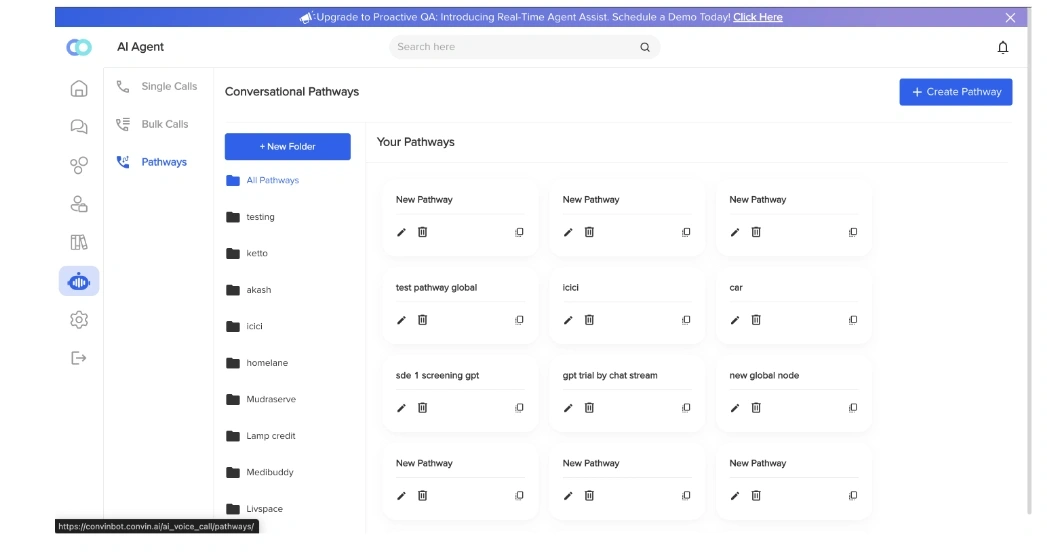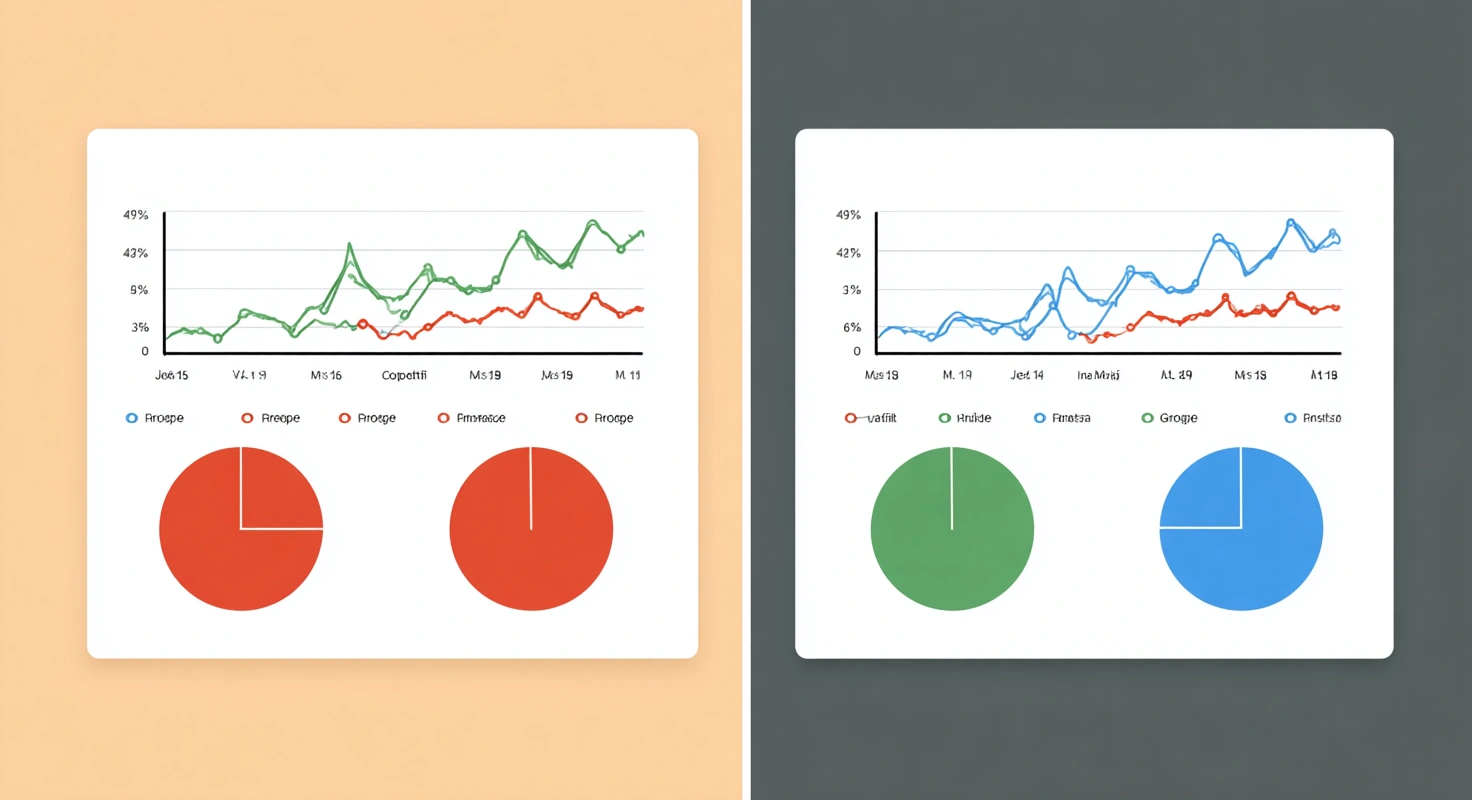Automation in insurance is driving measurable transformation across claims, compliance, sales, and customer experience. By leveraging AI, RPA, and digital innovation, insurers achieve faster processing, stronger compliance accuracy, and improved policyholder satisfaction.
The blog features four detailed case studies that showcase real-world results, positioning automation in insurance aided by Convin as a critical enabler of growth, efficiency, and competitive advantage in today’s market.
Automation in insurance refers to the use of AI, RPA, and digital tools to streamline processes such as claims, sales, compliance, and customer service. The problem is that manual insurance processes are slow, error-prone, and costly; automation in insurance solves this by improving efficiency, accuracy, and policyholder satisfaction.
Activate Convin’s Real-Time Agent Assist to cut resolution time.
Introduction to Automation in Insurance
Automation in insurance has evolved from being just a cost-reduction tactic into a full-fledged strategic enabler. Modern insurers are now integrating automation across claims, compliance, customer service, underwriting, and sales to optimize end-to-end performance.
This adoption aligns with digital consumer preferences while significantly reducing operational inefficiencies.
Insurers embracing automation in insurance notices experience sharp improvements in turnaround time and policyholder satisfaction. Unlike legacy processes, automation drives scalability without losing efficiency.
At the heart of insurance automation success stories are real-world case studies that demonstrate measurable results in growth, profitability, and trust-building.
As more insurers turn to automation powered by AI in insurance, combined with RPA case study adoption, the impact is becoming increasingly visible. Digital transformation in insurance further amplifies these benefits by eliminating silos, enhancing data clarity, and ensuring compliance. These aspects firmly establish automation in insurance as the future driver of competitive advantage.
Deploy Conversation Intelligence to surface sales blockers.
Case Study 1: Automation in Insurance Claims Processing
Claims management is often where policyholders judge insurers most critically. Delayed claims, errors in approvals, and human biases can rapidly erode trust.
Automation in insurance claims processing addresses these hurdles instantly, ensuring accuracy, reducing turnaround times, and increasing satisfaction. Faster and error-free settlements strengthen long-term customer loyalty while cutting costs for insurers.
- Digital Transformation In Insurance For Claims Scalability
Digital transformation in insurance enables seamless integration between front-end policyholder portals and back-end claims management systems. Automation in insurance applies advanced workflow orchestration, ensuring data flows securely and quickly between departments.
This transition from manual claim verification to digital-first processes reduces workload gaps and data duplication, ultimately enhancing efficiency.
- Claims cycles shortened from 18 days to just 72 hours.
- Customer complaints reduced by 40% in live insurance automation success stories.
- Operational claim-handling costs dropped by 25% with digitized workflows.
Digital transformation in insurance empowers insurers to manage claims during peak demand seasons without staff shortages. By combining automation and AI in insurance claims, companies can process thousands of cases simultaneously, improving policyholder trust. The outcome ensures a rapid claims environment where speed never compromises compliance.
- RPA Case Study Insurance Focus
RPA case study: Insurance adoption proves that bots are best suited to handle repetitive tasks. Automation in insurance claims through RPA involves bots extracting data from medical reports, policy terms, and claim forms.
Validation and fraud identification become faster, safer, and significantly more reliable with the implementation of automation.
- RPA bots reduce claim workforce hours by 65–70%.
- Audit rule compliance accuracy jumped fivefold in insurance automation success stories.
- Fraudulent claims detection rate improved due to automated pattern recognition.
RPA case study insurance evidence firmly establishes its advantage in creating highly reliable back-end processes. Automation in insurance ensures that claims are handled consistently, thereby strengthening data integrity and reducing disputes. This integration of RPA has a positive impact on both profitability and customer experience.
Transitioning from claims, automation in insurance also revolutionizes policyholder experiences across daily touchpoints.
Cut ramp-up time with Auto-Coaching for new agents.
Case Study 2: Automation in Insurance Customer Experience
Policyholders demand personalized, instant, and reliable support from insurers today. Automation in insurance ensures that customer conversations become quicker, more accurate, and less prone to errors. By using real-time AI in insurance contact centers, insurers have successfully redefined how customers engage.

- Insurance Automation Success Stories In Policyholder Support
Insurance automation success stories reveal how automation in insurance enhances service delivery. AI-driven self-service bots, real-time agent assist, and omnichannel systems support policyholders effectively. With automation in place, queries about policy renewals, coverage details, and claims tracking are resolved seamlessly.
- AI for insurance policy led to a 25% drop in repeat queries.
- First call resolution rate improved by 38% in multiple adoption success stories.
- CSAT scores improved by 27% where conversational automation was deployed.
Insurance automation success stories underline that 24/7 engagement drives higher satisfaction and reduces churn. Policyholders enjoy a better experience with real-time updates to their insurance policies. Automation in insurance effectively bridges the long-standing gap between service availability and customer expectations.
- AI In Insurance For Call-Center Operations
AI in insurance has transformed call-center operations into powerful engines of compliance and efficiency. By embedding real-time conversation intelligence and automation in insurance, call agents are prevented from making costly errors. Automation-driven monitoring ensures supervisors receive timely analytics to address compliance and quality needs.
- Call handling times reduced by 30% across multiple centers.
- Compliance errors fell drastically due to AI-driven prompts.
- Automated QA platforms consistently boosted agent productivity.
AI in insurance provides predictive assistance, enabling advisors to recommend accurate solutions during live calls. Automation in insurance ensures policies, renewals, and claims conversations meet compliance rules while strengthening customer trust. Insurers gain secure call auditing with measurable efficiency in large-scale deployments.
Transitioning from customer experience, automation in insurance further proves its value in sales journeys and policy management.
Surface upsell moments using Conversation Intelligence.
This blog is just the start.
Unlock the power of Convin’s AI with a live demo.

Case Study 3: Automation in Insurance Sales and Policy Management
Sales productivity defines revenue growth for insurers, while policy management shapes operational resilience. Together, automation in insurance optimizes these key functions, driving higher conversions and accuracy in services. From onboarding new customers to managing renewals, automation unlocks efficiency while maintaining compliance standards.

- AI For Insurance Policy At Scale
AI for insurance policy issuance ensures optimal speed and personalization for every customer. Automation in insurance enables AI models to recommend the right products instantly based on customer profiles. This eliminates mismatched selling while allowing insurers to maximize cross-selling and upselling opportunities.
- Conversion rates lifted by 20–25% using AI-driven personalization.
- The processing time for complex policies decreased by almost 40%.
- Sales revenues grew in double digits, directly linked to AI-enabled automation in insurance.
AI for insurance policy supports contextual recommendations that drive consistent competitive differentiation. Automation in insurance allows customers to find value quickly while insurers achieve efficiency at scale. By automating underwriting, sales journeys become frictionless, and accurate policy matches are ensured.
- Digital Transformation In Insurance Sales Workflow
Digital transformation in insurance sales accelerates automation in customer onboarding. Automated workflows eliminate documentation errors and reduce the reliance on manual policy issuance cycles. Additionally, RPA case study insurance implementations further speed up repetitive approval tasks across the entire ecosystem.
- RPA-driven policy approval reduced cycle time by 35%.
- Paperless onboarding lowered operating costs by 28%.
- Improved automation in the insurance industry highlighted productivity spikes across various regions.
Digital transformation in insurance enables staff to focus on relationship-based sales, while automation handles paperwork. Repetition-intensive sales workflows are simplified into efficient frameworks that enhance speed and quality. These insurance automation success stories set a standard for insurers seeking sustainable sales growth.
Transitioning from sales and policy, automation in insurance also proves revolutionary in regulatory risk and compliance management.
Stop revenue leakage with real-time sales objection alerts.
Case Study 4: Automation in Insurance Compliance and Risk Management
Risk governance and regulatory compliance are among the toughest challenges insurers face. Automation in insurance elevates compliance accuracy while automating error-prone manual verification tasks. With the adoption of both AI in insurance and RPA, insurers can successfully achieve proactive risk tracking.
- RPA Case Study Insurance For Regulatory Adherence
RPA case study insurance insights confirm automation is invaluable in compliance-focused auditing. Automation in insurance enables bots to perform regulatory checks across documentation, risk reports, and claim settlements. RPA reduces dependency on expensive manual reviews while providing instant compliance records.
- The compliance cycle was improved by 60% using RPA.
- Penalty avoidance achieved through real-time checks and reporting.
- Document-based errors eliminated in showcased insurance automation success stories.
Automation in insurance strengthens perception of regulatory governance and trust within industry ecosystems. RPA establishes uniform processes across compliance-intensive areas, thereby minimizing exposure to financial penalties. This ensures compliance becomes both a defensive and competitive advantage.
- AI In Insurance Risk Prediction
AI in insurance provides predictive capabilities to reduce both operational and financial risks. Automated fraud-detection models leverage historic datasets and behavioral analytics. Automation in insurance further equips insurers to identify high-risk policy lapses or fraudulent intent in near real-time.
- Fraud probability detection improved by up to 45%.
- Retention improved by 20% due to the implementation of lapse prediction capabilities.
- Insurance automation success stories link AI insights to revenue retention strategies.
AI in insurance strengthens enterprises by combining predictive analytics with actionable automation. Automation in insurance enables insurers to address risks proactively while maintaining a cost leadership position. Together, AI and RPA safeguard customer portfolios while supporting profitable business continuity in insurance operations.
Transitioning from compliance, we now highlight how Convin enables the successful implementation of automation in the insurance industry.
Track script adherence using Convin’s Real-Time Assist prompts.
Convin’s Contribution to Automation in Insurance
Automation in insurance requires reliable technology providers who specialize in compliance, efficiency, and customer satisfaction. Convin delivers cutting-edge automation capabilities to insurers through a portfolio of products, enhancing both sales and support.
Its powerful combination of conversation intelligence, real-time agent assist, and automated QA has shaped global insurance automation success stories.
- Real-time agent assist enhances advisor capabilities during live customer calls.
- Automated QA ensures consistent compliance monitoring for sensitive conversations.
- Customer insights reveal hidden opportunities for growth in sales and customer satisfaction.
Convin plays a pivotal role in embedding digital transformation in insurance workflows. With solutions tailored for compliance monitoring, policyholder satisfaction, and debt collection enhancement, Convin ensures insurers gain practical advantages. Its portfolio empowers AI in insurance to drive quick ROI while improving long-term customer retention strategies.
Launch targeted training via KPI-based Coaching Insights.
Automation in Insurance Defines Insurer Growth
The four case studies highlight how automation in insurance generates measurable outcomes across claims, compliance, sales, and customer experience. Insurers that adopt automation reduce errors, improve visibility of compliance, and provide consistent, scalable customer support. These insurance automation success stories demonstrate efficiency gains, financial growth, and stronger trust-building outcomes.
Digital transformation in insurance, coupled with RPA case study insurance and AI for insurance policy issuance, sets new standards. Automation levels the playing field, ensuring insurers outpace the competition. AI in insurance enables proactive risk management and predictive analytics, effectively minimizing fraud and lapses.
Automation in insurance is no longer optional but a foundational necessity. Insurers are prioritizing automation to drive revenue expansion, increase policyholder satisfaction, and enhance compliance and security.
Schedule your Convin demo today!
FAQs
- How does digital transformation in insurance reduce costs?
Digital transformation in insurance reduces costs by automating claims processing, underwriting, and customer service workflows. It eliminates paper-based tasks and lowers manual labor needs. Insurers experience 30%–40% operational cost savings through AI-driven efficiency and self-service platforms.
- What is an RPA case study insurance example?
An RPA case study insurance example includes bots automating claims validation and compliance checks. For instance, insurers have reduced workforce hours by up to 70% and improved audit accuracy fivefold. RPA ensures faster, error-free claims and regulatory adherence in large insurance operations.
- How does AI in insurance prevent fraud?
AI in insurance helps prevent fraud by analyzing large datasets and instantly detecting suspicious patterns. Machine learning models identify high-risk claims and flag anomalies for human review. This automation reduces false claims, saving insurers millions and strengthening risk management.
- What role does AI for insurance policy management play?
AI for insurance policy management personalizes policy recommendations, automates underwriting, and predicts risk of policy lapses. It speeds up policy issuance while ensuring accuracy and reliability. This AI-driven automation improves sales conversions and retention by delivering customer-centric, compliant insurance policies.



.avif)



.avif)

.avif)